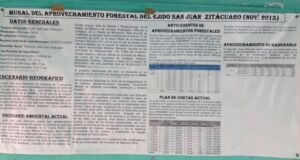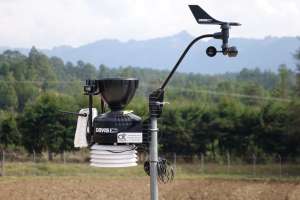In 2015 doctoral student Miramanni Mishkin designed a project to evaluate the success of community based resource management in the indigenous communities of Carpinteros, San Juan Zitácuaro and Nicolas Romero. These communities were chosen because they have done a good job conserving their forests maintaining more than 80% of the dense forest cover over the last decade.

Through interviews with the communities and using a method called Bayesian Network Analysis Miramanni identified several characteristics that are influential for efficient forest management. Among the most relevant features she found were small community size, well defined boundaries, appropriate leadership, shared norms facilitating social pressure and rule enforcement, fair resources allocation (thus discouraging clandestine use), locally devised and easily enforced access and management rules. The communities also rely on low-cost exclusionary technology (fences), which aids in the physical protection of their forest boundaries and helps enforce the general rules of conservation established by the Reserve.
The results of this research as it will allow us to identify the ideal attributes of communities that are successfully conserving their forest, so we can support and encourage other communities to do the same. To read more see article published in Research in Ecology in October, 2024.




